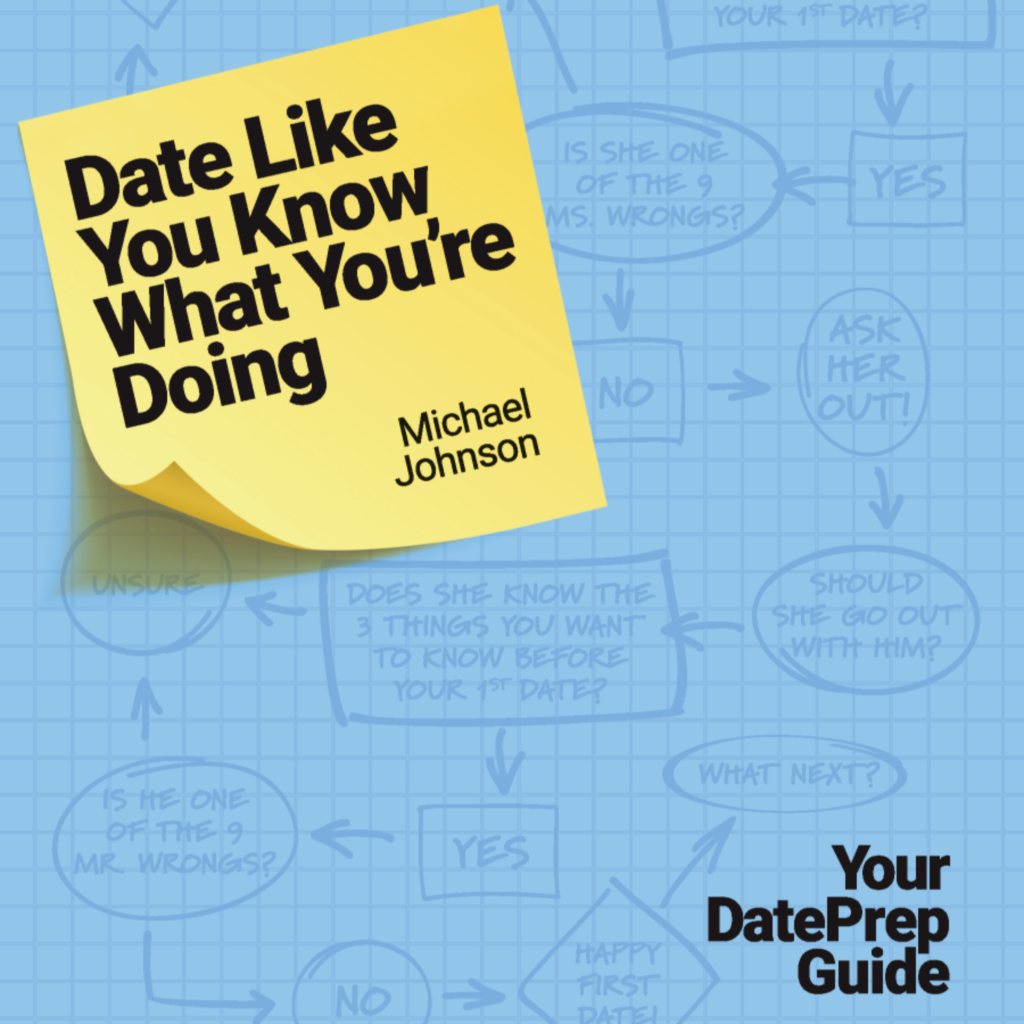 It’s another one of those “sayings:” “People only change when the pain of staying the same is greater than the pain of change.” That’s a pretty fatalistic outlook, but more often than not, it’s reality.
It’s another one of those “sayings:” “People only change when the pain of staying the same is greater than the pain of change.” That’s a pretty fatalistic outlook, but more often than not, it’s reality.
Sadly, most will wait until they’re stuck in a dead (or at least severely disappointing) marriage where they’re contemplating counseling, an affair, divorce or all three, before they’re persuaded to deal with their past.
Even then, most folks will just settle for the affair and/or the divorce and move on without ever seriously unpacking their personal history. Even those who finally submit to counseling don’t want to dig any deeper than necessary.
But that’s not going to be your reality. That’s why you’re walking through this guidebook now. That’s why you’re going to make the decision to make peace with your past in the present.
Pain doesn’t have to be the only catalyst to change. You can be motivated much less painfully by wisdom.
Speaking of wisdom, let’s get right to some rich scripture that might serve as inspiration on our journey into history.
Therefore, since we are surrounded by so great a cloud of witnesses, let us also lay aside every weight, and sin which clings so closely, and let us run with endurance the race that is set before us, looking to Jesus, the founder and perfecter of our faith, who for the joy that was set before him endured the cross, despising the shame, and is seated at the right hand of the throne of God. – Hebrews 12:1-2 (ESV)
At first blush, maybe you’re not sure what this passage has to do with making peace with your past. It’s theoretically talking about where you are now in the race of life and where you want to go. That’s the present and the future, not the past.
However, before we’re called to run this race, we’re called to lay aside two things:
- every weight
- the sin which clings so closely
But where, pray tell, did these weights and sin come from? Did they just spring up over night? No, they were acquired in our past. They accumulated over time, like barnacles on the bottom of a boat, or rust on the body of a car.
Like sea growth on a ship which increases load and drag, we can’t run as fast when we carry added weight and sin. Just as rust over time compromises the structural integrity of a vehicle, our own integrity is compromised when we don’t lay aside these effects we’ve acquired from our past.
Two Pieces to Making Peace with Your Past
Can you really expect to process your past in a few lessons in one guidebook? No, you can’t; but let’s consider the two things we’re called to lay aside in this Hebrews passage.
Every Weight
The word “weight” is also translated “burden” or “encumbrance.” Certainly this would include burdens we received from those who hurt us (and we already touched on that in lesson two), but some burdens we didn’t receive from other people.
Who’s to blame for natural disasters, tragic accidents, severe illness or handicaps? For that matter, even the less dramatic disappointments can plague your past; things like rain on your vacation, spilling your food tray in the cafeteria, or never making the team. In lesson six we’ll look at these weights, these painful experiences from our past with which we need to make peace.
Sin which Clings so Closely
Now let’s look at this “sin which clings so closely.” The NASB interprets this “sin which so easily entangles.”
Surely nothing entangles more easily than sin, since it’s fundamentally not what we do, but who we are.
You may have been baptized as a baby, but you were born a sinner. Add to that, the fact that sin generally produces some level of immediate gratification and that makes it even easier to do again and again and again. And of course, once the pleasure wears off, the consequent guilt and shame inspire you to cover your sin instead of confess it, and the circle is complete. You have thus been “so easily entangled.”
Fortunately, having God’s Holy Spirit residing within you will make sin easier to resist, but it still doesn’t make it easy. We’ll look at this sin in lesson five: these painful choices from our past with which we need to make peace.
Can’t Make Peace in Pieces
Even as we talk about making peace in all these various aspects (wrong and different loved ones, experiences and choices from the past), please understand: you won’t have peace until you’ve made peacemaking your goal in all respects.
Peace is a full-package deal. We see this vividly reflected in the Hebrew word for peace: shalom. The word “shalom” actually has a depth of meaning we’ve lost in our compartmentalized modern culture. Strong’s Lexicon lists all of the following ideas as being tied up in the word “shalom:”
- Completeness
- Safety/soundness
- Welfare/health/prosperity
- Peace/quiet/tranquility/contentment
- Peace/friendship – both in human relationships and with God
Whoa! It’s quite a word isn’t it?
Peace in the biblical language is very holistic. It’s quite literally about finding completion.
In fact, I took all the previous words from Strong’s Lexicon and categorized them to help us see the totality of the meaning of “shalom.”
- Physical safety and health
- Material welfare and prosperity
- Intellectual soundness and quiet for the mind
- Emotional peace, tranquility and contentment
- Relational peace with those around you
- Spiritual peace with God; completeness in Christ
Are you truly at peace in all those areas? Probably not.
I’m not, but that’s my goal. I’m not going to try and define what kind of peace I will and won’t make anymore. I’ve tried it and found nothing but frustration. Instead, I’m going to determine to be a peacemaker. I’m going to fail (more than once), but I’m going to get back up and try again. I hope you’ll join me.
Questions (in reference to the Heb 12:1-2 referenced above):
- What are the two things we are to lay aside in order to run the race set before us (use your own words)?
- How are we to run this race? What kind of race is it: a sprint or something else?
- What connection do you see between what we are to “lay aside” and how we are to run the race?
- What earthly example(s) do we have for how to run this race? (Look up Heb 11 for an even bigger answer.)
DNA: It’s What’s For Dating
Dug this weekend’s DNA? Be a good friend and share with your friends on the social media platform of choice: Instagram, Youtube, Facebook, or Twitter.
 The LoveEd discipleship series, Beyond Sex & Salvation, will empower you to prepare for relational success when it counts: BEFORE you fall in love!
The LoveEd discipleship series, Beyond Sex & Salvation, will empower you to prepare for relational success when it counts: BEFORE you fall in love!
It’s NOT for couples, but for any wise individual who thinks they might want to get married sometime before they die. And would like to learn how to better build healthy relationships in the meantime.
Check out all three study guides in our store. You can walk through them on your own, but it’s more fun with friends (that and it kinda makes sense to grow in relational success in actual relationships with others), so consider putting together an FMU LoveEd small group study.
Even better? And ask a rock star married couple you respect to lead it!





